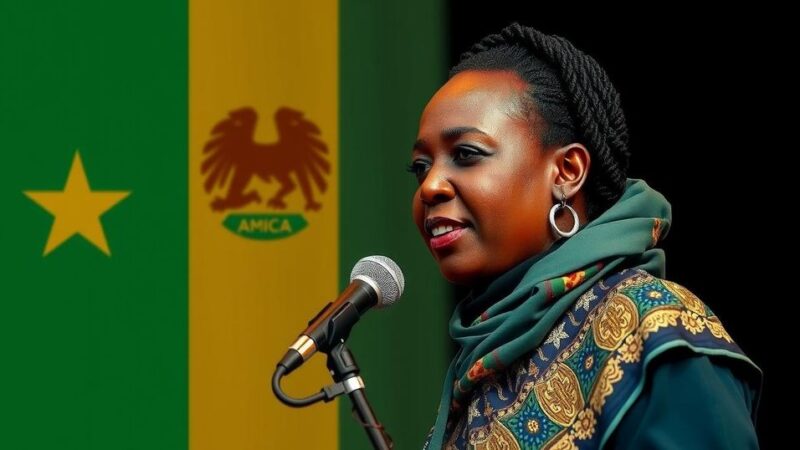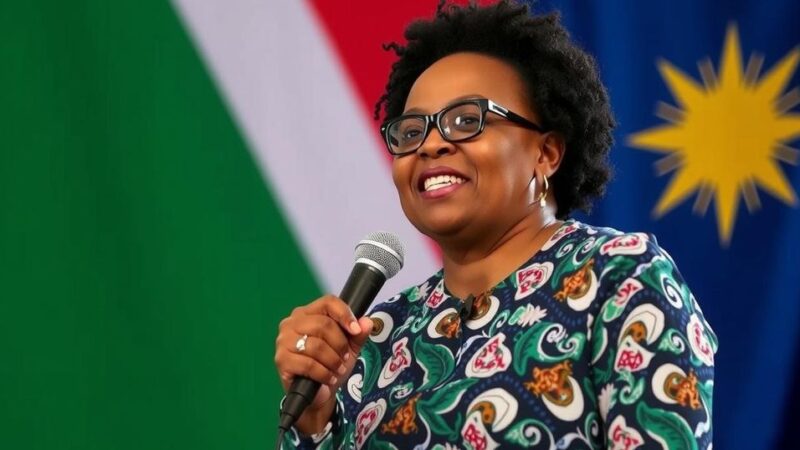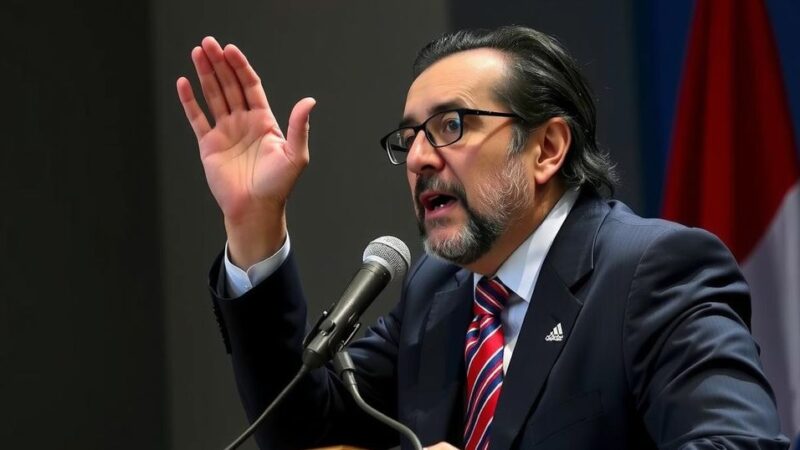Yamandu Orsi won Uruguay’s presidential runoff, defeating conservative Alvaro Delgado with 49.77% of the vote. His victory marks a departure from the conservative coalition and reflects a growing trend of incumbents losing support globally. Both Orsi and Delgado expressed commitment to work collaboratively post-election. The results underscore changing voter priorities in the face of economic and social challenges.
Yamandu Orsi, representing the centre-left opposition, emerged victorious in Uruguay’s presidential runoff election, according to official results released on Sunday. Orsi garnered 49.77% of the votes, defeating conservative candidate Alvaro Delgado, who received 45.94%. Addressing his supporters in Montevideo, Orsi proclaimed, “The country of freedom, equality and also fraternity triumphs once again. Let’s continue on that path.” Both Delgado and current President Luis Lacalle Pou quickly conceded, wishing Orsi well and offering assistance during the transition period.
The election reflects a trend witnessed throughout this year, where many incumbent parties have been ousted amidst rising political divides in the region. Unlike the situations in neighboring countries like Argentina and Brazil, Uruguay has maintained a relatively stable political environment, characterized by cooperative interaction between conservative and liberal factions. The focal issues for voters included high living costs, inequality, and crime, though recent indicators showed a decrease in inflation and improvements in employment and salaries.
Orsi’s Broad Front secured a notable victory in the Senate, winning 16 out of 30 seats, thereby enhancing his ability to govern despite the absence of an outright majority in the lower house. The election underscores a significant turning point in Uruguayan politics, as it marks a shift away from the current governing coalition, which has encountered various challenges, including economic concerns and corruption allegations. This change is emblematic of a broader pattern in global elections this year, where incumbents have faced significant backlash from voters.
Uruguay, a South American country known for its progressive policies and relative political stability, has recently witnessed a shift in its political landscape following the presidential runoff election. Yamandu Orsi’s victory signifies a notable change from the conservative government that has been in power. The political climate is markedly different from other Latin American countries, where political polarization has been more prevalent. High living costs and concerns over crime have driven voters toward the left, coupled with the incumbents’ struggles to maintain support due to socio-economic challenges and scandals.
The election of Yamandu Orsi as president represents a pivotal moment in Uruguay’s political trajectory, signaling a shift away from conservative governance towards a more moderate left approach. As both competing parties expressed a willingness to cooperate, this transition may foster political stability despite ongoing challenges. The broader implications of this election echo a global tendency of voters seeking change amid dissatisfaction with incumbents, reflecting shifting priorities in the electorate’s concerns.
Original Source: www.theguardian.com






